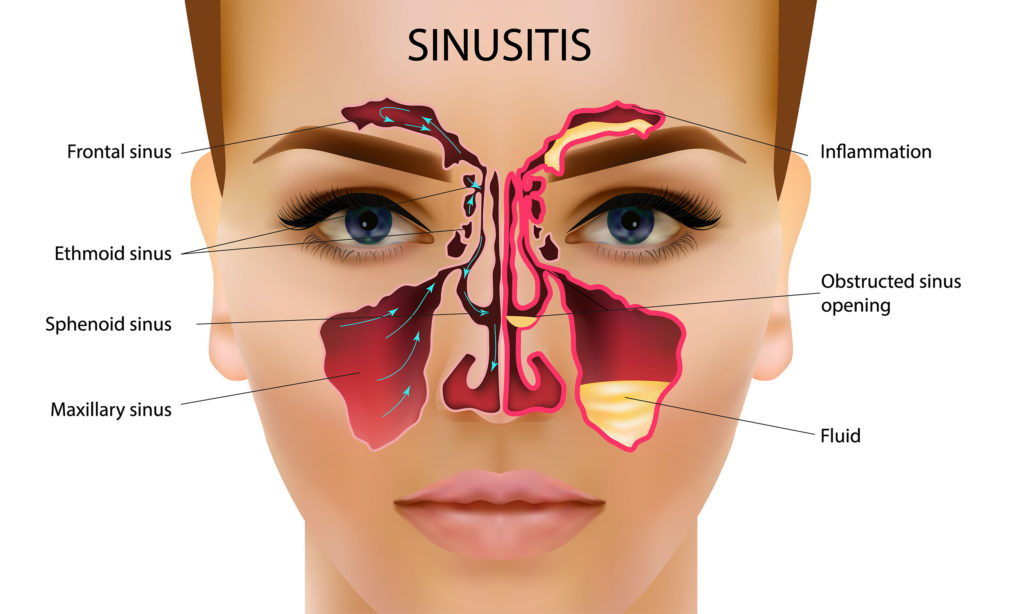
These days, anytime our throats feel sore, we worry that it might be COVID-19, but there are a wide range of other causes of sore throats. And yes, sinus drainage is one of them.
When you have a sinus infection or a sinus headache, you tend to feel it all over your face. Your forehead aches, your eyes burn, your cheekbones feel swollen, your jaw throbs, and even your throat might feel sore.
And that makes a lot of sense because your sinuses and your oral health affect one another in numerous ways.
What are sinuses?
A sinus is defined as a hollow space, and there are many throughout the body. For the purpose of this discussion, we are focusing on the following four pairs of sinuses inside the skull, called paranasal sinuses.
- The maxillary sinuses are located at your cheekbones.
- The frontal sinuses are located at the lower center of your forehead.
- The ethmoid sinuses are located between your eyes at the sides of the bridge of your nose.
- The sphenoid sinuses are located behind your nose.
The paranasal sinuses are connected by narrow channels. The sinuses make mucus that drains out of the channels of the nose in order to keep the nose (and therefore overall body) clean and free of bacteria.
Another purpose of these sinus cavities is to make the skull lighter due to less density, and the sinuses also have a role in how our voices sound.
They are made up of the same kind of tissue that lines the inside of the nose. Therefore, the same things that can negatively affect the lining of the nose, such as allergies or infections, can also affect the sinuses. An infection or irritation can cause the tissue inside the sinuses to swell, and mucus increases. When fluid and air become trapped inside these swollen sinuses, it creates pressure in the head, known as a sinus headache.

Sinus Drainage and Your Oral Health
Your sinuses and your oral health affect each other in numerous ways.
In some cases, a direct correlation exists between a sinus infection and a toothache. Swelling and mucus buildup in your sinuses can put pressure on the nerves that run to the roots of your top teeth, or the gums. As a result, you may feel pain in your tooth due to a sinus infection, known as sinusitis.
On the other hand, a sinus infection also may be caused by an oral infection in the maxillary teeth, the ones in the upper-back part of the mouth. Many maxillary sinus infections are caused by gum disease, for instance. Gum disease can lead to inflammation, irritation, and infection of the gum tissue and bone, which would therefore irritate the sinuses.
A tooth abscess can cause similar discomfort in the sinuses. In association with an abscessed tooth, the sinus may drain to the gums or elsewhere in the mouth, as well as to the face or neck.
Identifying the Cause and Effect
To wrap it up: If you have an infection in your teeth or gums, it can affect your sinuses; if you have an infection in your sinuses, you may feel it in your teeth or gums.
Either way, in order to determine which came first, you should make an appointment to see your primary care doctor, as well as Dr. Holtzman for a dental exam. Treating one issue may very well treat the other as well, as well as prevent future occurrences or more serious dental health issues.
Book an appointment with our dentist online or do so by calling our office, located on Fisher Road in Grosse Pointe.
